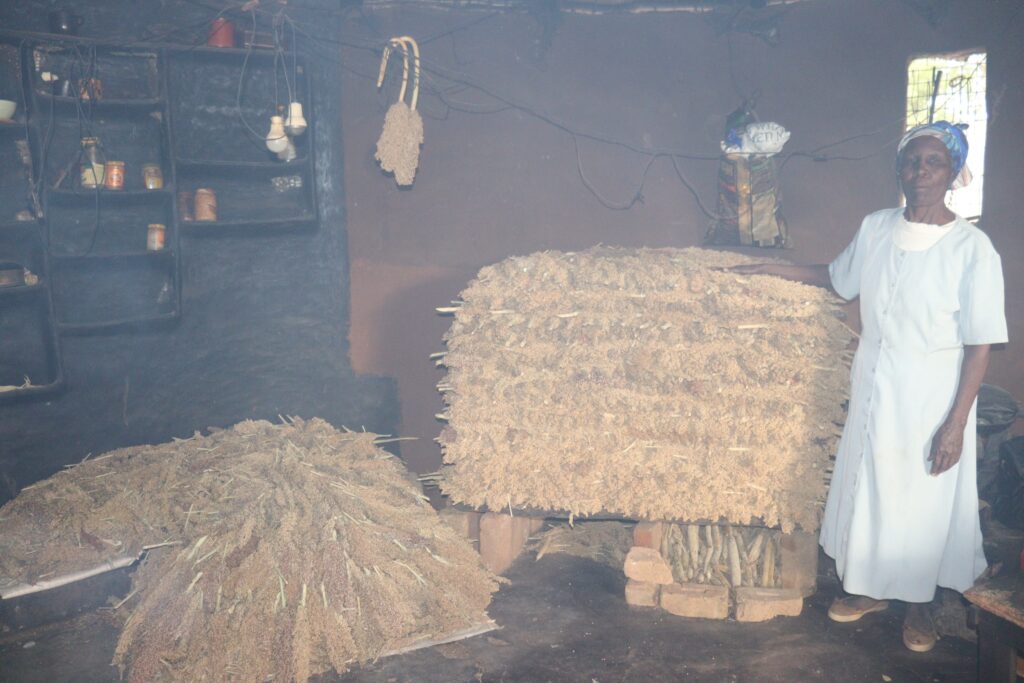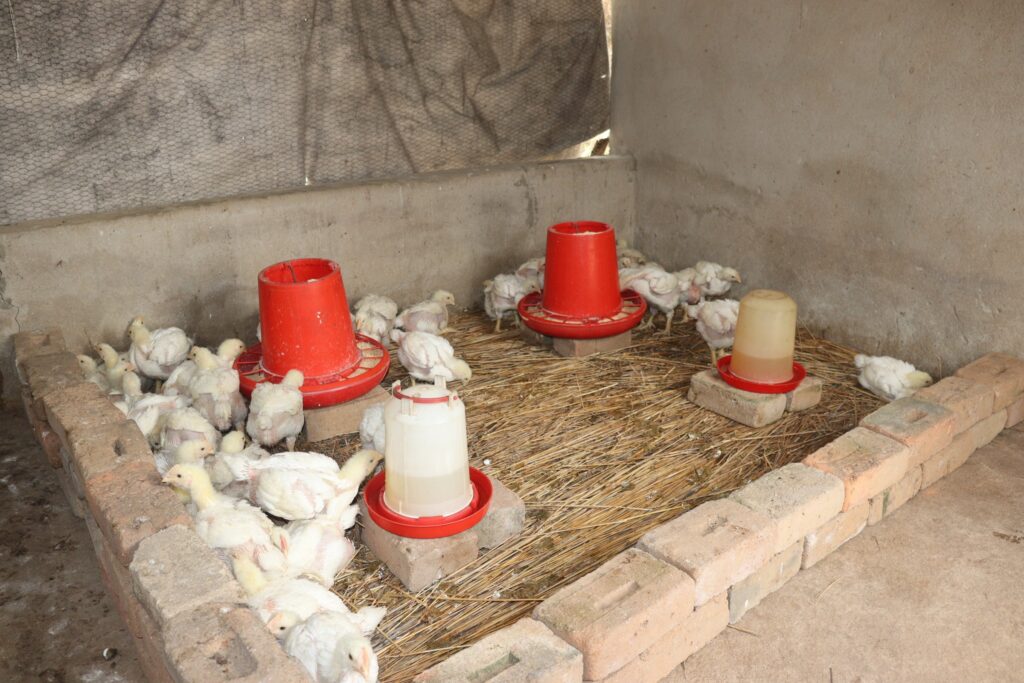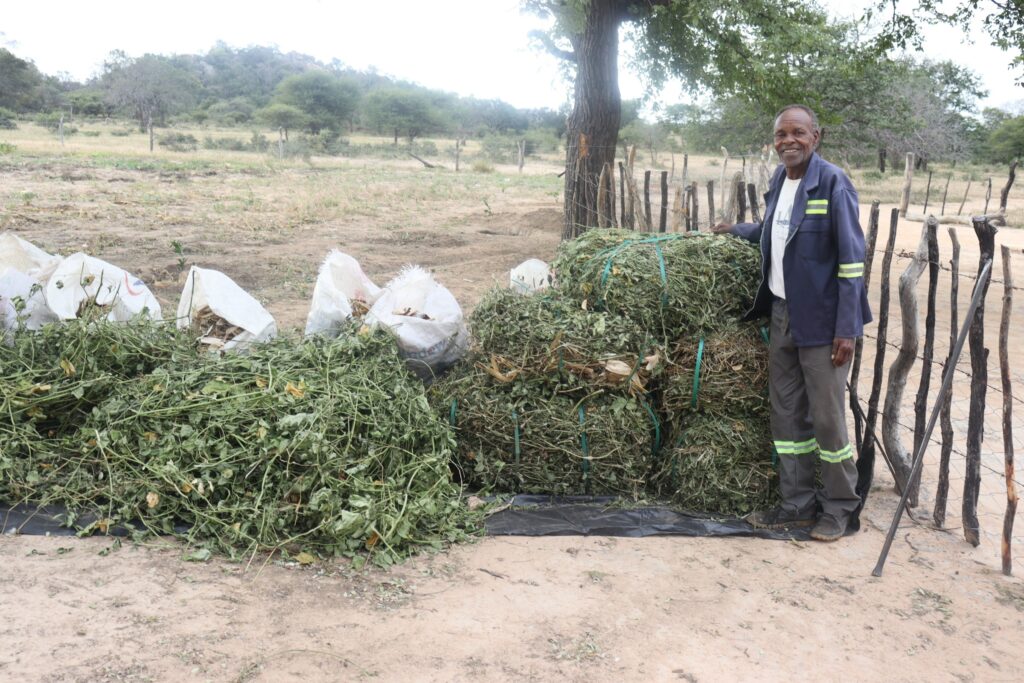
DIVERSIFYING FOR RESILIENCE: A FARMING FAMILY’S JOURNEY
Obadiah and Oline Dube, are dedicated farmers from Ward 8 in Sizeze village, who have transformed their agricultural practices through the Locally Led indigenous Nature-Based Solution for Climate Change Adaptation in Zimbabwe (LINCZ) project implemented by the BIC-CDS. Previously, they relied on conventional maize farming which left them vulnerable to climate change impacts. By embracing Conservation Agriculture (CA) principles, they have not only improved their livelihoods but also become a beacon of hope for their community. The Dube family has diversified their farming practices to include the “plus” components which include fodder production, agroforestry, and climate smart crops. The couple received 13 exotic and indigenous tree seedlings which they planted on a 0.25-hectare plot, which serves as a demo site for the program. Through the project, they’ve received four varieties of seeds, 12,5kgs of molasses, and training in CA, fodder production, reforestation, and gender.
The Dube’s have adopted sustainable practices that prioritize local resource use, eliminating pesticides and herbicides. Instead, they rely on farmyard manure for nitrogen fixation, and mulching to maintain soil health. Intercropping has also helped them control insects, pests and weeds. Notably, their CA plot showed minimal damage from fall armyworm, unlike their conventional sorghum plot. After attending post-harvest training, Oline adopted traditional storage methods, utilizing kitchen smoke to preserve her sorghum harvest. The family expects a 300kg sorghum yield and has started exploring small grains resilience. They’re excited to participate in value chain and market linkages to build agribusiness resilience.
The Dube family works together and collaborates closely in project activities, sharing decision-making responsibilities despite Oline being the registered volunteer farmer. Oline’s involvement in the Ncedanani VSL group that was strengthened by the organisation has enabled her to initiate a broiler farming project. She’s also invested in fencing materials four rolls of 30m each to secure their LINCZ plot.

As active members of the Brethren in Christ Church, Dube has not only showcased his skills but inspired the church members to adopt sustainable agricultural practices, promoting ecosystem conservation and climate resilience. Quoting from 2 Thessalonians 3:10, which says,
“If anyone will not work, neither shall he eat.”
Baba Dube emphasized the importance of diligence and hard work. Additionally, they are members of Farmer Field School established by BIC-CDS, and have generously donated the land for demonstration purposes.
The family owns 23 cattle, 9 goats, 12 indigenous chickens, and 7 sheep. Mr. Dube credits fodder training that instrumentally helped in minimizing cattle losses during tough seasons.
“The fodder training really helped us a lot, while many farmers lost up to 20 cattle, we only lost one thanks to the knowledge we gained” said Dube.
The community received excessive rains, which although affected the Dube’s groundnut crop, filled their dams and ensured a steady supply for their livestock, a relief after the previous year water scarcity.

This year around they have started hay bale processing and so far, they have 21 hay bales and they are still bailing, demonstrating the effectiveness of their sustainable practices. They also hosted a field day, sharing their experiences with local farmers. This initiative promoted sustainable agriculture practices, climate resilience, and diversified livelihoods.
They recognize that diversification minimizes the impacts of increasingly unpredictable rainfall and their story serves as a testament to the power of collaboration, innovation, and sustainable agriculture in building resilient communities. Obadiah emphasized,
“we contribute to climate change and together we can mitigate its effects.”